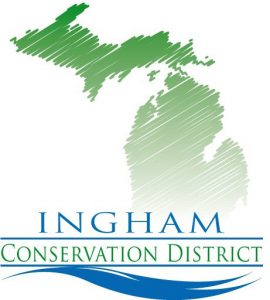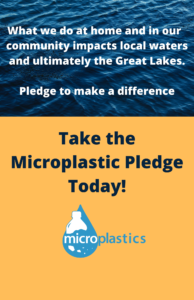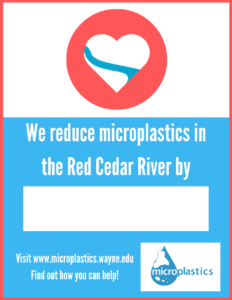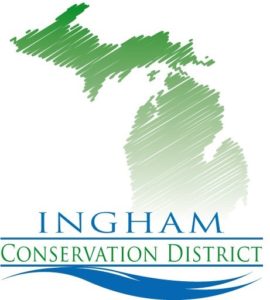Microplastics
What are microplastics?
Microplastics are plastics that are 5mm or smaller and a growing environmental concern. Some microplastics are intentionally manufactured. They are found in industrial and health and beauty products often for scouring or exfoliation purposes. Other microplastics result from the breakdown of larger plastics (bags, bottles, straws, etc) and from the shedding of synthetic fibers from our clothing.
Why are we concerned?
Microplastics have been found in our rivers, lakes and oceans, our drinking water and food. The abundance and small size of microplastics allows them to bypass water treatment and be easily ingested by wildlife and humans. One study found that we ingest enough plastic each week to make a credit card! Microplastics have been found in environments around the globe even in some of the most remote places on Earth. While the impacts of microplastic pollution is not yet fully understood, there are concerns that they could cause inflammation, build up in body tissue, impact our gut biome, and even cause neurodegeneration. There is also a concern that other pollutants can attach themselves to microplastic particles and be carried into our bodies and the bodies of wildlife.
What can we do?
1.)Be aware of the issue – the videos below are a great introduction
2.) Reduce the amount of plastic we use, especially single-use plastics such as shopping bags, water bottles, and straws
3.)Choose natural instead of synthetic fabrics when possible
4.)Know what’s in our products – download the Beat the Microbead app which scans product bar codes for plastic ingredients
5.)Choose to reuse – reuse items when possible and opt for reusable options such as shopping bags, coffee cups and water bottles
6.)Recycle – know what items are recyclable in your community and make the items you put in your recycling are clean
7.)Use a Microplastic Filter when doing laundry – Choose from items such as a Cora Ball, Guppyfriend Bag, or an in-line filter. These filters prevent plastic fibers that are shed during machine washing from entering our rivers and lakes.
8.)Take the Microplastic Pledge!
9.)Request a poster for your organization or business. These fill-in-the-blank posters are a great way to showcase what your company or organization is doing to reduce microplastic pollution. Note the name of the river/lake is editable.
10.)Share this information with your friends, family and members of your community
Smart Management of Microplastic Pollution in the Great Lakes
This project is an innovative multi-year initiative aimed at reducing microplastic pollution in communities surrounding the Great Lakes. Our team is comprised of individuals from universities and organizations in Michigan working towards protecting the Great Lakes ecosystem.
This work is grounded in the need for more information on the sources of and solutions for microplastic pollution. New knowledge gained through this effort will be applied to microplastics mitigation. Our approach includes research utilizing innovative sensor technology, targeted microplastic control methods, and a public awareness campaign aimed at increasing microplastic mitigation engagement in the Great Lakes region.
Together with our community partners we are testing new practices for improving Great Lakes water quality. Focused in the Michigan cities of Williamston and Pontiac, our efforts place new tools in the hands of community members. Through this collaborative process, potential approaches for microplastic pollution control and monitoring are being developed. We hope the insights gained through this work can be scaled-up throughout the Great Lakes region.
We want to thank the City of Williamston and the City of Pontiac for recognizing the importance of understanding microplastic pollution and for serving as pilot communities. The participation of city leaders, local organizations and residents will be critical to developing a leadership model for how communities can best address an issue that affects us all.
Join us in our efforts by attending an event in one of our partner cities or volunteering to help get the word out about microplastics. Raise awareness in your community by sharing our MICROPLASTICS Infographic Card, Microplastics Project Fact Sheet and website. Your efforts to reduce plastic inputs to the Great Lakes will have benefits for generations to come!
Learn more at microplastics.wayne.edu
This project is funded by the Great Lakes Protection Fund



